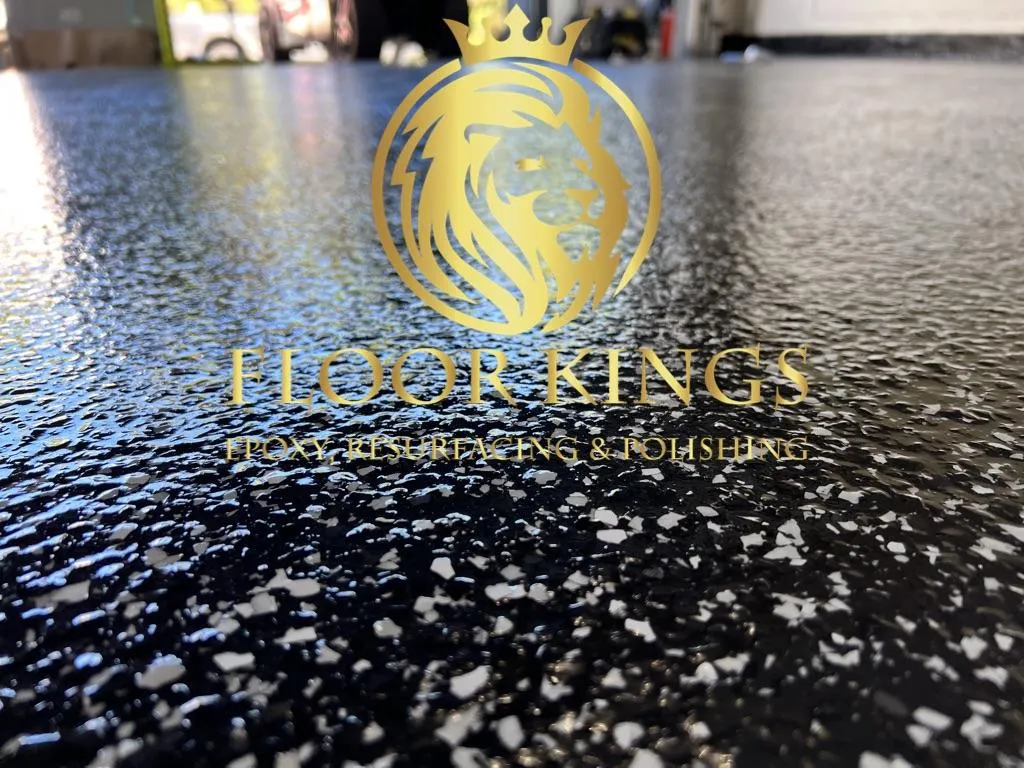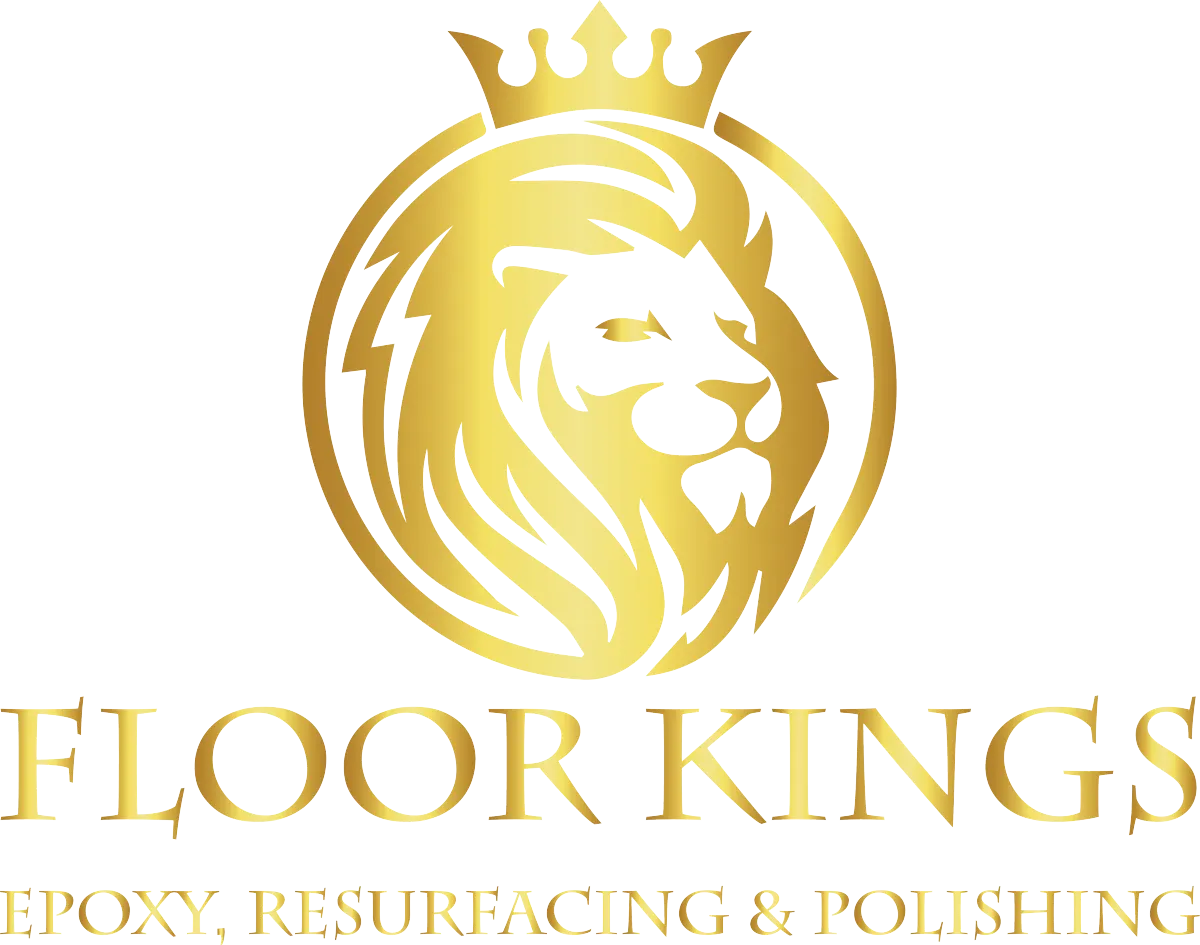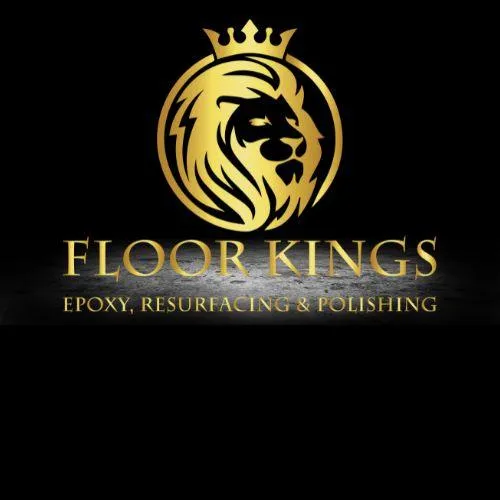
“20x Stronger Than Epoxy?” Real Talk About Gimmick Flooring Claims in Port St. Lucie
“20x Stronger Than Epoxy!” – Let’s Break That Down
You’ve seen the ads. Maybe it was on Facebook, maybe it was a pop-up at the local home show. Some contractor in a branded polo is promising a floor coating that’s “20x stronger than epoxy!” Sounds amazing, right?
Here’s the truth: that’s a sales pitch, not a spec sheet.
When someone throws out a claim like “20x stronger,” the first question should be—stronger how? Are we talking compressive strength? Abrasion resistance? Adhesion? Tensile pull-off strength? Flexibility? Because not all epoxies are the same, and not all coatings play the same role in a system.
A 100% solids epoxy system professionally installed with a proper primer, full broadcast flake, and a polyaspartic topcoat is already industry standard in commercial garages, warehouses, and showrooms across the U.S. It's trusted because it works—and it holds up under forklifts, floor jacks, and chemical spills. So when someone comes along and claims their stuff is “20x stronger,” it’s worth asking: stronger than what? A $99 box store kit?
The numbers don’t mean much when they’re pulled out of context. And unfortunately, in a market like Port St. Lucie—where people want durability, fast installs, and sharp aesthetics—that kind of hype can mislead homeowners and businesses into picking the wrong product… or worse, the wrong contractor.
So what are these guys actually selling? Let’s dig in.
What Are These Companies Actually Selling?
When a contractor claims their floor is “20x stronger than epoxy,” they’re usually pushing polyurea or polyaspartic coatings. These are real products used across the coatings industry—but the way some companies market them? That’s where things go sideways.
Polyurea and polyaspartic coatings aren’t new, and they aren’t magic. They’ve been around for decades and are used in everything from industrial tanks to bridge decks. The reason some contractors push them so hard now is simple: speed.
These coatings cure fast—sometimes within hours. That makes it possible to offer flashy “one-day floor” installations, which sound great until you realize what gets sacrificed to hit that timeline (more on that in the next section). They also offer:
Excellent UV resistance—they won’t yellow in the Florida sun.
High chemical resistance, especially when top-coated properly.
A sleek finish that looks great in garages and showrooms.
But here’s the part they don’t tell you: most polyurea systems are applied thinner than a true multi-layer epoxy system. We're talking 8–10 mils thick in many cases, versus 20–30+ mils for a professional-grade flake epoxy install with primer, base, broadcast, and topcoat.
So yeah—they might be faster. But “stronger”? Not across the board. And when those systems are installed by a rushed crew with poor prep work, the coating doesn’t have a chance to live up to the hype.
Polyurea and polyaspartic coatings can be great—but only in the right hands, under the right conditions, with the right prep. And that’s the part the franchise guys tend to skip.
Where the Real Problems Start: Prep, Process & Pressure Sales
This is where the wheels start coming off.
The coatings themselves—polyurea, polyaspartic, epoxy—aren’t the issue. The problem is how they’re installed, and who’s doing the work. Because in the race to promise “one-day floors” and “super-strength coatings,” a lot of these companies are skipping the one thing that matters most: concrete prep.
We’ve seen it too many times here in Port St. Lucie. A homeowner pays thousands for a garage floor that looks great for a few months… until the bubbles start forming. Or flakes start peeling off in strips. Or the whole thing delaminates after the first wet season. Why? Because the installer didn’t take the time to grind the concrete properly—or didn’t grind at all.
Proper prep isn’t optional—it’s the foundation of the whole system. If you don’t mechanically grind the concrete to open up the pores, remove contaminants, and create a rough surface profile, the coating has nothing to grab onto. No amount of marketing can fix that. Acid etching doesn’t cut it. Light sanding doesn’t cut it. You need serious diamond grinding with industrial equipment and dust control.
Here’s the other dirty little secret: many of these jobs are done by undertrained crews or third-party subs. The salesperson who pitched you the “20x stronger” floor is long gone, and the people on-site might not even know what product they’re installing. They’re following a script. A checklist. And if something doesn’t go as planned—moisture in the slab, uneven patchwork, cold joints—they're not equipped to make the call that saves the floor.
Then there’s the pressure sales game. You’ll hear stuff like:
“This pricing is only good today.”
“We have one slot left in your area this month.”
“Epoxy is outdated—this is the future of coatings.”
It’s all about closing fast, not educating the customer. Because if you had time to compare quotes, do research, or—God forbid—ask questions about prep and mil thickness, you’d probably see through the pitch.
And here’s the result: floors that fail early, warranties that don’t get honored, and homeowners stuck with a mess that costs even more to fix than it did to install.
So if you’re hearing a lot of buzzwords and not a lot of real talk, it’s time to start asking better questions.
When Is Polyurea or Polyaspartic a Good Fit? (And When It’s Not)
Let’s be clear—we’re not knocking polyurea or polyaspartic as products. We install them at Floor Kings. They’re excellent tools when used properly and matched to the right job. But they’re not miracle coatings, and they’re definitely not a one-size-fits-all solution.
Here’s where they shine:
Sun-exposed areas like outdoor patios or entryways, where UV stability is critical.
Fast-turnaround projects where downtime needs to be minimized, such as retail stores or busy garages.
Topcoats over broadcast systems where durability, chemical resistance, and a sleek finish are desired.
But here’s the catch—they only perform that well when the floor is properly prepped, moisture levels are managed, and the installer actually knows what they’re doing. And that’s not always the case with the contractors pushing the “20x stronger” line.
Here’s where they fall short:
On moisture-prone slabs, especially if no vapor barrier was installed. These coatings cure fast and don’t always allow enough time for moisture evaluation.
In thick-build applications where high mil thickness is required for impact resistance or resurfacing rough concrete. Polyurea isn’t meant to build up like epoxy can.
On poorly prepped surfaces, which is the biggest reason we see failures. Doesn’t matter how strong the coating is on paper—it won’t bond to concrete dust or sealed surfaces.
At Floor Kings, we’ve removed plenty of failed polyurea floors installed by franchise crews rushing to hit a sales quota. It’s not the coating—it’s the context. And unfortunately, that’s exactly what gets left out of the sales pitch.
The product isn’t the problem. It’s the process—and more often, the people.
What You Should Ask When a Company Says Their Floor Is “20x Stronger”
If a contractor walks in talking about “20x stronger than epoxy,” treat that as your cue to start digging deeper. Not with confrontation—just good questions. The kind of questions that a real pro will want to answer.
Here’s your playbook:
1. “Stronger than what epoxy?”
There’s no single standard for epoxy. Are they comparing their product to a $200 DIY kit from the hardware store? Or to a 100% solids epoxy system professionally installed with proper prep, broadcast, and topcoat? If they can’t explain the difference, they probably don’t know it.
2. “What kind of surface prep do you do?”
This is the litmus test. If they say acid etching or just “cleaning the surface,” stop right there. Ask if they do mechanical grinding—and listen for specifics. What grit? What tooling? Are they checking for moisture? Any real flooring contractor should have no problem breaking it down.
3. “What type of primer and base coat do you use?”
Strong floors start with adhesion. A moisture-tolerant epoxy primer is crucial in Florida. If they skip the primer—or can’t tell you what type they use—they’re not building a system that’s going to last.
4. “How thick is the coating system you’re installing?”
Most polyurea-based one-day floors are around 8–10 mils. A full broadcast epoxy system with flake and polyaspartic topcoat can hit 30+ mils. If you’re paying top dollar, you deserve to know what’s actually being installed on your slab.
5. “Do you back this with a written warranty?”
Not a verbal promise. Not a flyer. A real, written warranty that covers peeling, delamination, and performance failure—and outlines what voids it. A legit contractor has no issue putting it in writing.
6. “Can I see local projects or talk to past customers?”
If all they have are stock photos, walk away. The best in the business have real jobs to show off—especially in Port St. Lucie. Bonus points if they’ve done work in similar garages, commercial spaces, or even your neighborhood.
The bottom line? A good contractor welcomes questions. A bad one will dodge, deflect, or talk in circles. Ask the tough stuff—and pay attention to how they respond.
Real Floors, Real Results: Why Floor Kings Focuses on Prep Over Hype
At Floor Kings, we’ve got no interest in chasing gimmicks. We’re not here to win the marketing game—we’re here to win the long game. That means installing floors that actually last, look sharp, and hold up in real-world conditions.
Here’s our approach: Prep is everything. Every single job starts with mechanical grinding. Not acid etching. Not power washing. Not a glorified buffer. We use industrial-grade diamond grinders to open up the concrete, remove old coatings, and create a surface our materials can lock into like rebar in concrete.
Then we choose the right system for your space. Not what’s trendy. Not what some out-of-town franchise is pushing on a sales script. Sometimes that’s epoxy with a full flake broadcast and polyaspartic topcoat. Sometimes it’s a hybrid system. Sometimes it’s polished concrete. But it’s always based on what your floor needs—not what sounds flashy on a postcard.
We know Florida concrete. We know how Port St. Lucie’s humidity, rain, and heat can mess with a floor if it’s not done right. That’s why we take our time to do the job properly—so you don’t have to deal with bubbling, peeling, or warranty drama a year down the road.
We’ve fixed plenty of failed coatings from “stronger than epoxy” outfits who rushed through prep and cut corners on materials. Our goal? To never be the company someone else calls to clean up after.
Real floors, real results. That’s the Floor Kings difference.
Don’t Buy the Hype. Get the Right Floor for Your Space.
If a contractor needs to throw around flashy claims like “20x stronger than epoxy” to sell you a floor, that should tell you everything you need to know. Because when a coating system is actually built to last, the results speak louder than any tagline.
At Floor Kings, we don’t sell buzzwords—we install floors that perform. Every job starts with a real conversation, not a rehearsed pitch. We show up, inspect your concrete, talk through your goals, and recommend a system that makes sense for your space, your timeline, and your budget.
Garage floor? Commercial shop? Warehouse? We’ve done them all. And we back up our work with a rock-solid warranty, local references, and results you can see—not just hear about in some overhyped sales line.
Want a floor that’s built for Florida—and built to last?
Call Mike at Floor Kings at 772-370-7938, email [email protected] or fill out our contact form. We’ll give you the facts, walk your floor, and get it done right—no pressure, no shortcuts, no BS.
Because strong floors start with honest work. And that’s what we’re about.

